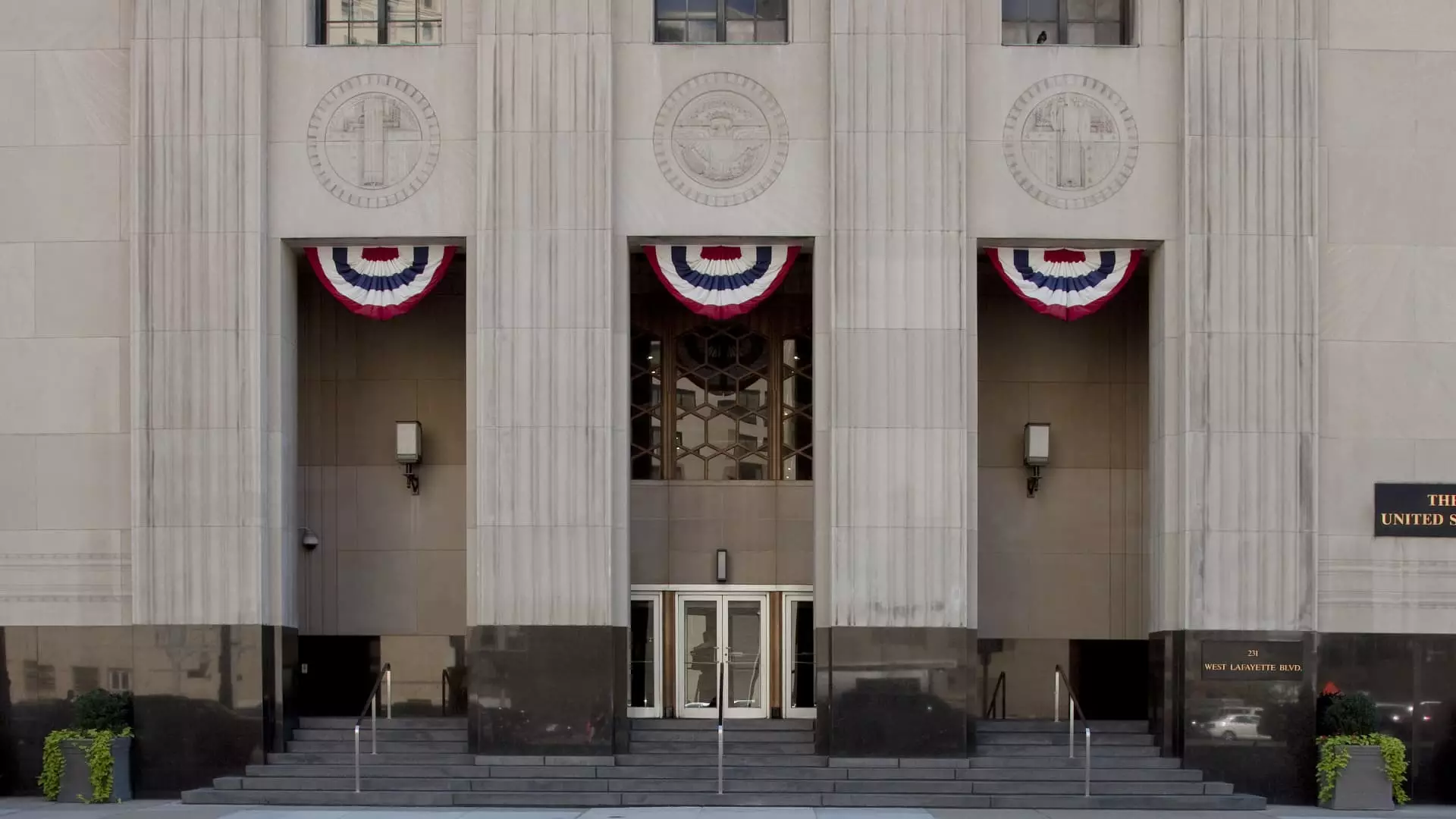In a case that transcends mere legal ramifications, the recent charges against a Chinese researcher and her boyfriend for smuggling a dangerous biological pathogen illuminate significant vulnerabilities within our national security framework. Yunqing Jian, a postdoctoral fellow at the University of Michigan, along with her boyfriend Zunyong Liu, has been implicated in the conspiracy to smuggle *Fusarium graminearum*, a notorious fungus known to wreak havoc on crops and livestock. This incident is not just alarming due to the pathogen itself, but also raises profound questions about the integrity of our academic institutions and the implications of cross-national research collaborations.
The discovery of a potent biological agent hidden in Liu’s backpack at the Detroit Metropolitan Airport is a revelation that cannot be swept aside. The fact that this couple, who pursued research in China, would go to such lengths—intentionally concealing the fungus in tissues within a wad—speaks to a mindset that prioritizes personal ambition over ethical research practices and public safety. Their planned usage of *Fusarium graminearum* in U.S. labs, despite knowing the potential risks, reveals a reckless disregard for the consequences of their actions. This scenario begs the question: How often does the allure of scientific advancement overshadow moral responsibility?
The Broader Implications of Smuggling Biological Agents
As we dissect this unusual case, it’s essential to understand the broader implications that extend beyond the individuals involved. *Fusarium graminearum* is not just any fungus; it’s responsible for billions of dollars in economic losses every year, primarily due to its role in crop disease. Its manipulation or potential weaponization raises alarm bells within the agricultural sector and national security circles alike. The toxins produced by this pathogen can induce vomiting, liver damage, and reproductive defects in both livestock and humans. The implications of smuggling such a dangerous agent into the United States cannot be understated.
The conduct of the FBI Counterintelligence Division in this investigation prompts further examination of the efficacy and vigilance of our border security. While no system is infallible, the existence of such a threat slipping through the cracks should initiate a thorough reevaluation of the protocols in place when it comes to biological imports. The complicity of researchers or students from foreign countries in these smuggling attempts escalates concerns about intellectual property theft and potential espionage. If such actions are indeed performed in search of academic advancement, then the academic landscape itself must take accountability for how it nurtures and monitors its scholars.
Academia and the Fragility of Trust
The University of Michigan’s response, which emphasized the condemnation of actions threatening national security, reflects a broader institutional concern about the implications that criminal behavior might have on its reputation. Higher education institutions often draw their vitality from an ethos of openness, collaboration, and trust; yet this incident erodes that foundation. When individuals within these environments fail to adhere to ethical standards, it compromises the very fabric of academic integrity.
Furthermore, Jian’s denial of knowledge regarding Liu’s smuggling operations adds another layer of complexity to the narrative. Whether a tactic of self-preservation or genuine lack of awareness, her position signifies a troubling disconnect between personal accountability and collective responsibility in academic settings. This represents a pivotal moment where we interrogate how well these institutions screen their personnel and the methodologies that inform research trajectories.
In the midst of this growing scandal, societal reaction must also pivot toward the broader implications for international academic partnerships. While cross-border collaboration is essential for global advancement, it necessitates rigorous oversight. As the ramifications of this case unfold, it may serve as a critical litmus test for how the United States manages foreign relationships in an era where scientific discovery intertwines dangerously with national security.
The unfolding story of Yunqing Jian and Zunyong Liu invites us to reflect on the delicate balance between innovation and security, scientific ambition, and ethical responsibility. As we delve deeper into the implications, it becomes evident that vigilance must remain at the forefront of academic research to prevent the kind of egregious missteps that could have repercussions far beyond the confines of a university lab.



Leave a Reply